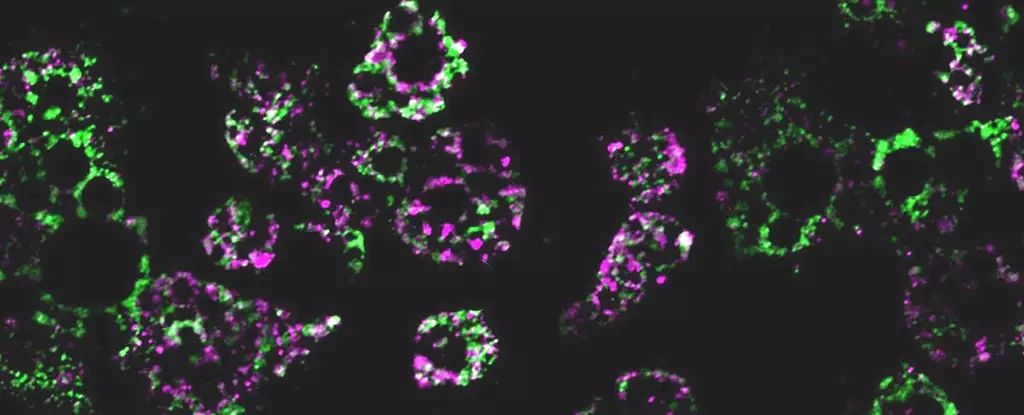Obesity remains a global health crisis with significant implications for overall well-being. As scientists continue to delve into the complexities of obesity, a recent study has shed light on the connection between obesity and the fragmentation of mitochondria, the powerhouse of cells responsible for energy generation. This groundbreaking research, conducted on mice, reveals that a high-fat diet leads to the fragmentation of mitochondria within fat cells, subsequently impairing their ability to burn fat efficiently. While the precise mechanisms underlying this process are still unknown, researchers have identified a single gene that governs this mitochondrial fragmentation. Deleting this gene in mice prevented excessive weight gain, providing valuable insights into potential strategies for managing obesity.
Unraveling the Mystery of Impaired Mitochondrial Function
Mitochondria play a crucial role in energy metabolism, making their impairment particularly concerning in individuals with obesity. When mitochondria are unable to perform optimally, it can contribute to reduced energy expenditure, further exacerbating the challenges associated with obesity. However, the origins of this impaired mitochondrial function have remained enigmatic, prompting researchers to delve deeper into this metabolic anomaly.
Through their research, the international team of scientists discovered that a high-fat diet promotes the fragmentation of mitochondria in fat cells of mice. This fragmentation results in the formation of smaller mitochondria with reduced fat-burning capacity. Importantly, their study identified a key molecule called RalA that regulates this process. RalA is known for breaking down malfunctioning mitochondria, but when overactive, it can interfere with the regular functioning of mitochondria, triggering a metabolic cascade. By understanding this mechanism, researchers believe they are one step closer to developing targeted therapies that enhance fat burning and address weight gain and associated metabolic dysfunctions.
To demonstrate the impact of RalA, the researchers deleted its associated gene in some mice and fed them a high-fat diet identical to that of the control group mice. Remarkably, mice lacking the gene did not experience the weight gain observed in the control group. While this study was conducted on mice, the researchers highlight that the similarities between RaIA-influenced proteins in mice and human proteins associated with obesity and insulin resistance suggest potential implications for humans. Further research is necessary to confirm these findings in humans and explore the potential of targeting the RalA pathway for obesity management and prevention.
The discovery of the underlying molecular mechanism behind the impaired mitochondrial function in obesity opens up promising avenues for therapeutic interventions. By targeting the RalA pathway, it may be possible to enhance fat burning and counteract the detrimental effects of a high-fat diet. Developing interventions that restore mitochondrial function could not only aid in weight management but also prevent or alleviate the metabolic dysfunctions associated with obesity, including diabetes, heart disease, and cancer.
Towards a Healthier Future
Obesity continues to pose significant challenges to public health worldwide. However, this groundbreaking study offers hope for a deeper understanding of the intricate relationship between obesity and mitochondrial function. By identifying and studying the role of the RalA pathway, researchers are inching closer to developing effective targeted therapies that tackle the underlying mechanisms contributing to obesity and its associated health complications. As the global obesity epidemic persists, the quest for innovative solutions to combat this multifaceted crisis remains imperative. Through continued research, collaboration, and a comprehensive understanding of the intricacies of obesity, we can strive towards a healthier future for all.


Leave a Reply